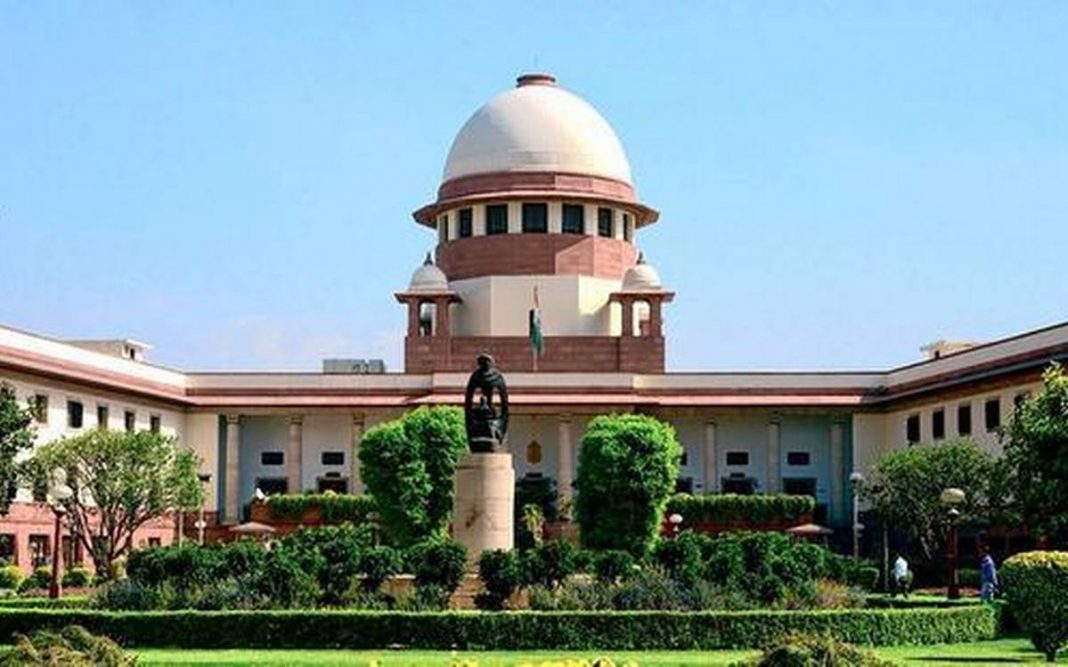The Supreme Court has dismissed the appeal filed by a man, who mercilessly killed his girlfriend, when he saw her talking to another boy.
A Bench comprising Justice Dinesh Maheshwari and Justice Vikram Nath observed that excessive number of injuries do not ipso facto lead to an inference about involvement of more than one person in the crime.
Its rather the nature of injuries or the similarity of their size which would only lead to the inference that she was mercilessly and repeatedly stabbed by the same weapon and by the same person, noted the Court.
It reiterated the settled principle of law that the court will not reappreciate the evidence for taking a different view of the evidence than that has been taken by the Trial Court and the High Court, unless it’s a case of manifest illegality so as to call for interference.
The Court relied upon the judgement passed in case of Pappu vs State of Uttar Pradesh: Criminal Appeal No 1097-1098 of 2018 decided on February 9, 2022, wherein the Supreme Court, after a survey of various decisions on the topic, has summed up as follows:
“20……In such an appeal by special leave, where the Trial Court and the High Court have concurrently returned the findings of fact after appreciation of evidence, each and every finding of fact cannot be contested nor such an appeal could be dealt with as if another forum for reappreciation of evidence. Of course, if the assessment by the Trial Court and the High Court could be said to be vitiated by any error of law or procedure or misreading of evidence or in disregard to the norms of judicial process leading to serious prejudice or injustice, this Court may, and in appropriate cases would, interfere in order to prevent grave or serious miscarriage of justice but, such a course is adopted only in rare and exceptional cases of manifest illegality. Tersely put, it is not a matter of regular appeal.
This Court would not interfere with the concurrent findings of fact based on pure appreciation of evidence nor it is the scope of these appeals that this Court would enter into reappreciation of evidence so as to take a view different than that taken by the Trial Court and approved by the High Court.”
“Nothing of any misreading of the evidence or any error of law or procedure has been pointed out,” said the Top Court in reference to the case in hand.
Also Read: Allahabad High Court summons SP Cyber Crime Lucknow in bank fraud case
The Court was dealing with an appeal filed by a man convicted of offences under Section 302 IPC and Sections 25 and 27 of the Arms Act, after having been tried in Sessions Case No 5 of 2004 by the Court of Ninth Additional Sessions Judge (F.T.C.), Durg.
It was the prosecution’s case that he was having a love affair with the deceased, but got enraged, when he saw the deceased talking to another boy; and caused multiple injuries to the deceased by a pointed knife, leading to her death.
As per the post-mortem report, as many as 12 injuries were found over the body of the deceased, including penetrating wounds on lungs and liver. The prosecution also examined PW-1 as an eye- witness, who asserted having seen the appellant repeatedly causing injuries on the person of the deceased. The prosecution further asserted that the weapon of offence, the knife of about 21 cm long blade, was recovered on the disclosure made by the appellant.
Taking an overall view of the evidence, the Trial Court held that the prosecution had been able to substantiate the charges; and, after convicting the appellant as noticed above, awarded varying punishments, including that of life imprisonment for the offence under Section 302 IPC. In appeal, the High Court again examined the relevant evidence and found no reason to interfere with the findings of the Trial Court and thus, affirmed the conviction of the appellant as also the punishments awarded to him.
Also Read: Supreme Court refuses to quash bail of rape accused, observes it as consensual relationship
Before the Supreme Court, amicus curiae had submitted that there had been no evidence of matching of the blood allegedly found on the knife with that of the deceased; that PW-1 cannot said to be a reliable witness, particularly when the incident allegedly happened in front of his house, but he neither raised any alarm nor tried to save the deceased; and that excessive number of injuries on the person of the deceased would suggest involvement of more than one person.
Rejecting the above contention the Apex Court has held,
“The evidence of PW-1, being the eye-witness to the incident, remains unimpeachable and has been believed by the two Courts. His evidence cannot be discarded only for the reason that he allegedly did not raise any alarm or did not try to intervene when the deceased was being ferociously assaulted and stabbed. Excessive number of injuries do not ipso facto lead to an inference about involvement of more than one person; rather the nature of injuries and similarity of their size/dimension would only lead to the inference that she was mercilessly and repeatedly stabbed by the same weapon and by the same person.”
The Court after perusal of the records has noted that the appellant, after having served the sentence of imprisonment for a period of 15 years 9 months and 27 days, was released under Section 432 CrPC by the Government of Chhattisgarh.
Also Read: Supertech twin towers to be razed by May 22: Noida Authority to Supreme Court
“Having regard to the circumstances, we make it clear that dismissal of this appeal shall not be of any adverse effect on such exercise of power of remission by the Government of Chhattisgarh,”
-the Court has noted in its order.


